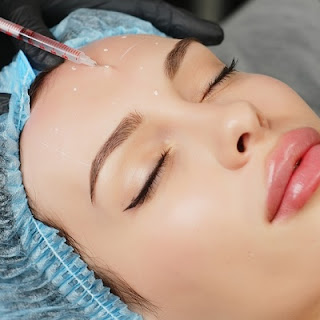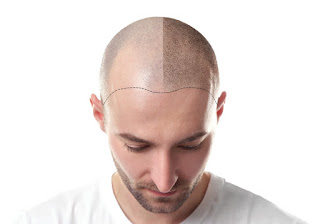Ways To Treat Hyperpigmentation: What You Need To Know
Hyperpigmentation: What is it?
Patches of skin that are hyperpigmented grow darker than they should be. This happens when the body creates an excessive amount of melanin, the pigment responsible for skin colour.
The two types of hyperpigmentation are as follows:
hyperpigmentation that is localised to a single location.
Hyperpigmentation that is diffuse and impacts the entire body.
Why does hyperpigmentation occur?
Melanocytes, the cells responsible for skin colour, create melanin. Hyperpigmentation can result from these cells producing more melanin than usual due to sun exposure, inflammation, hormonal changes, and some drugs.
various forms of hyperpigmentation
Hyperpigmentation has several distinct causes.
Among the most typical are:
- solar exposure
- a scarred acne
- age stains
- changes in hormones, like those that happen during pregnancy or
- hormonal adjustments, including those that can place during menopause or pregnancy
- birth control pill usage
- Many skin disorders, such psoriasis or eczema
- excessive skin rubbing or scrubbing
- Drugs, such as various cancer therapies and anti-inflammatory medications
How to stop hyperpigmentation from happening
As with most skin issues, prevention is always better to treatment. You can take a few steps to prevent hyperpigmentation from developing in the first place.
Sunscreen use is essential! Even when it's overcast outside, remember to use sunscreen every day. Make sure to reapply sunscreen every two hours and pick a broad spectrum product with an SPF of 30 or higher. One of the main causes of hyperpigmentation is exposure to the sun, thus it's crucial to apply sunscreen.
Sunscreen use by a woman to avoid hyperpigmentation
Avoiding skin picking is another approach to stop hyperpigmentation. Picking can result in scars and a worsening of hyperpigmentation. Avoid the impulse to pick at blemishes if you have them.
Lastly, keep your skin moisturised. Hyperpigmented skin can result from dry skin. Use a moisturiser every day and drink lots of water to keep your skin nourished.
You can lessen your risk of hyperpigmentation by implementing these recommendations. Nonetheless, there are remedies available if hyperpigmentation does occur.
Hyperpigmentation treatments
Multifactorial hyperpigmentation has a wide range of potential causes. Hence, based on the aetiology, the optimal course of action for treating hyperpigmentation may change.
There are several methods for treating hyperpigmentation. The most popular form of therapy is using a hydroquinone-containing cream or serum topically. Hydroquinone can help erase hyperpigmented spots and lighten the skin.
Laser treatment and chemical peels are further hyperpigmentation therapies. Light beams are used in laser therapy to separate the hyperpigmented cells. Acids are used in chemical peels to exfoliate the skin, which can aid in the fading of hyperpigmentation.
To identify the best course of action for your hyperpigmentation, it is recommended to consult a dermatologist or esthetician.
PEELS FOR HYPERPIGMENTATION FROM CHEMICALS
A fantastic approach to lighten the skin and remove dark spots is using chemical peels. Before using one at home, consult a professional because there are various types, concentrations, and strengths for more severe hyperpigmentation.
chemical exfoliation
Chemical peels are used to treat a number of skin conditions, such as acne, fine lines and wrinkles, scars from the sun, and discolouration. Chemical peels can remove the top layer of skin, making them useful for treating many kinds of dark spots.
Conclusion
Many factors can contribute to hyperpigmentation. The most frequent reasons are overactive melanocytes, the cells that give skin its pigment, and sun exposure. Use sunscreen daily, refrain from picking at blemishes on your skin, and drink a lot of water throughout the day to prevent hyperpigmentation.
If you do experience skin hyperpigmentation or are seeking for a hyperpigmentation remedy then book your appointment at Enfield Royal Clinic.




Comments
Post a Comment